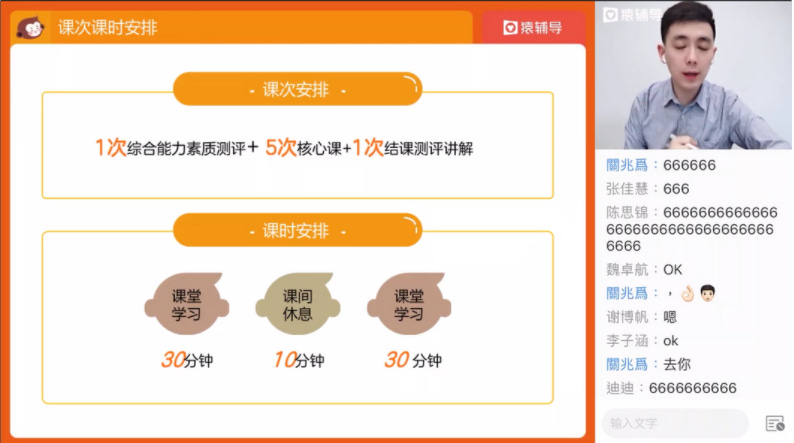In the next 5 years, we’re going to see classrooms turn into daycare, Youtube turn into school, and social turn into work.
👋🏽 Hello, I’m Daniel and welcome to Macro Media Lab! Twice a month I tackle some of the largest trends in emerging markets and break them down so you can understand how the world is changing.
This weeks report is on the future of education.
School is dead.
Okay so it’s not actually dead, but its current form is one of the things that are well on their way to dying in a matter of years. To help understand why, we’re going to dive into India and China, the two countries that hold 1/3 of the worlds population and are carving out the future of learning.

Lets Start
Education is something I’ve been thinking a lot about recently. With the explosion of the internet across emerging markets, the rise of remote work, and the emergence of decentralized payments, the way we work and get trained to enter the workforce is up for disruption.
In the next 5 years, we’re going to see classrooms turn into daycare, Youtube turn into school, and social turn into work. The 300M+ children who don’t have access to school will learn through their smartphone, and the 1B youth who don’t have access to a high class education will learn and create careers for themselves online.
There are a few trends that point us in this direction along with startups that have started to capitalize on this shift. Together, these paint what the future of learning across the world will start to look like.
- Enrichment programs replacing the classroom: Two companies in India and China have redefined where education happens, in a way that has made them some of the largest private companies in Asia.
- Cohort courses bringing creativity and network online: Going beyond just passive information intake online is a tough nut to crack. But a few startups have figured out a way – one of them spinning out of Elon Musk’s experimental school in SpaceX, the other from a global influencer.
- Who needs school when you can learn and monetize a skill: In India the market for freelancers is expected to grow from $20B to $30B by 2025, making it the second fastest growing freelance market it in the world. If you add borderless crypto payments, smart contracts, and DAOs this will just continue to grow – influencing the way we learn. Two startups are starting to dominate the continuous learning market. If you want me to get into DAOs in a future article, leave a comment below!
Let’s get into it.
1. Enrichment programs replacing the classroom.
Two main companies in India and China have redefined where education happens, in a way that has made them some of the largest private companies in the world. Byju’s and Yunfudao – collectively worth over $30B and are in the top 10 largest startups in Asia.
Byju’s
Byju’s, based in India, is the largest Edtech startup in the world with a valuation of $16.5B (bigger than PayTM). What started off as small company that sold digital test prep courses to parents, is now a household name hiring 200 people a day and expanding into the US, UK, Brazil, Indonesia, and Mexico. In 2019 they even struck a partnership with Disney to incorporate iconic characters into its learning videos, and have made acquisitions to dominate the education market and fuel its international expansion.
Three of their recent notable acquisitions are:
- WhiteHat Jr. – ($300M) an online EdTech firm in Mumbai that specializes in offering coding lessons, activities, and certificates to the under 22 age market. Giving Byju’s the edge on the coding education space and offering a path to certify or match students with employment.
- Osmo – ($120M) a US Based Edtech company that builds blended learning products for children aged 3-8 and is used by more than 20 000 schools in the US. Providing a quick way to expand into the US education system and begin to develop physical products that interact with its online services.
- Aakash Educational Services – ($950M) the top test prep company in India with 200 locations throughout the country, serving 250 000 students. With a hefty price tag, this acquisition allows Byju’s to start to dominate the test prep and Edtech market in India (projected to reach $30B in the next few years) and offer one of the largest omni-channel education experience in the world.
India, like China and other countries in the world (especially in Southeast Asia), has a very test heavy culture. The education system is exam-oriented and not course based: so students register for and take classes primarily to prepare for one of the centrally-administered examinations which tests them on a variety of subjects. While considered to be ‘enrichment’ (tutoring taken in addition to school courses) its clear that Byju’s is on a path to replace school entirely as the core way students around the world learn. This is a trend that will spread throughout Southeast Asia with Byju’s and other local players at the front. Even Google is getting in on the action.
Yuanfudao
India’s exploding edtech market is second only to China’s, who’s market value is expected to reach $70B in the next few years. China is home to homework-help company Yuanfudao which, valued at more than $15 billion, has become the second largest edtech startup in the world and is on track to quickly outpace Byju’s. (Although recently, the Chinese government has clamped down on the rapid growth of private education companies causing the stocks of market leaders like $TAL to drop sharply – learn more here).
China is similar to India when it comes to having an exam-centered education system. Its home to the notorious gaokao, the nationwide test that determines university placement and takes over the country each year.
Yuanfudao (company) has a number of apps that all play off one another. Its core app is Yuanfudao (app) offers live group tutoring sessions, where teachers ask questions and review material in an environment that feels like a mix between school and an internet chat room. Students submit answers and ask questions in their own chat boxes which are answered by TA’s, while their teacher leads quick math and reading drills. Usually in ratio’s of 3000 students to 1 teacher with an army of recent grads (TA’s) doing the work of answer questions, tracking student progress, and upselling parents in WeChat for other courses and apps on their network.
Other apps in the Yuanfudao (company) ecosystem use AI to provide, evaluate, and personalize homework for students between learning sessions. With this network of digital apps that provide lessons, personalized help, and create/evaluate personalized homework assignments – its hard to imagine schools stepping up with a superior experience.

2. Cohort courses bringing creativity online
Synthesis
Probably one of the most interesting, under the radar, Edtech companies not in Asia is Synthesis. A company that spun out of the experimental school that Elon Musk co-founded with educator Josh Dahn a few years ago inside of SpaceX.
Initially the school was called Ad Astra. It was dreamed up by Musk for his children and the children of some of the employees at SpaceX. The school had three goals that he discussed in an interview:
- An alternative to the age segregation model: Separating kids by age doesn’t make sense for education, because students have different interests and abilities that are independent of how old they are.
- Problem solving focus: Instead of giving children “tools” in a vacuum, they should be taught how to problem solve.
- Gamification: You don’t have to “encourage his kids to play games.” Gamifying education is a natural match for kids.
After a few years developing and experimenting with the curriculum in person, Dahn spun out Synthesis. A series of problem solving simulations where students 8-14 are enrolled in cohorts and spend 1 hour a week virtually working through various real-world simulations. This might be curating an art collection against other teams to start a successful gallery, managing an ecosystem of fish, or allocating the budget for a large city to address certain societal issues as a team.
While much of the details of the program are under wraps, within a few months of launching they’ve grown to $4M in revenue and have students from the US, India, Russia, and Europe who go through a rigorous selection process to be accepted. They’ve also brought on investors like Balaji Srinivasan (former CTO of Coinbase), Alexis Ohanian (co-founder of Reddit).
Their ultimate mission is to offer these simulations for free and use them to find bright students from across the world that they can bring into an elite full-stack digital STEM school. A good example of what this might look like is TKS, which is an innovation program targeted at students in the late elementary and high school level.
Nas Daily
You’ve likely seen his catchy one minute videos on Facebook, Twitter or Youtube through the brand ‘Nas Daily’. Nuseir Yassin is one of the most recognized content creators in the world with 38 Million followers, 7B views and 2500+ videos produced. Nas Daily is based in Singapore with offices throughout emerging markets. Over the last few months, they’ve been assembling an arsenal of content creators to launch Nas Academy – basically Masterclass with influencers from all over the emerging world.
While many edtech firms are targeting students and parents, Nas Daily is targeting the upskilling and reskilling segment by turning creators in educators. The platform currently features instructors like Metakovan (the secretive Indian crypto founder who purchased Beeple’s ‘Everydays’ NFT for a record breaking $69M), Ng Ming Wei (a Singaporean taekwondo champion with 20M+ TikTok followers), and Ritesh Agarwal – the founder of OYO (one of the biggest startups in Asia). .
The courses feature exclusive Whatsapp communities for the participants and are set up to join the cohort based learning trend that the US is seeing with companies like Maven (Launched by Udemy co-founder Gagan Biyani) and OnDeck which raised a $20M Seed round in March from some of the top investors in Silicon Valley. With the difference of being natively based in emerging markets across Asia and focusing on creators.
This is honestly one of the companies that I’m most excited about given its potential reach and unique value proposition in the edtech market. By leveraging the fan base of creators in emerging markets and providing the infrastructure to easily run cohort based courses – they are taking the leading edge of learning tech in the US and doing it with a reach we haven’t seen before in the edtech space.
3. Who needs school when you can learn and monetize a skill
The way we work guides the way we learn. Companies like Coursera, and Udemy rose alongside companies like Fiverr and Upwork. Today, anyone can take a course to learn a digital skill, and use that skill to complete a one off task for a small payment (aka. gig work). This cycle has enabled people to bypass the higher education system and create a career for themselves as freelancers working across borders.
Coursera and upGrad are two companies on the rise that focus on two different ends of that market. Digital freelancers who pick up contracts on Fiverr and Upwork, and digital professionals who pick up contracts with Amazon and Flipkart.
Coursera
Coursera, which went public earlier this year ($COUR), is one of the companies alongside Udemy and EdX that are training the current and future gig workers of the world. While big in the US, Coursera’s second biggest market is India. From 2019-2020 their revenue from India doubled and ended the year with roughly 10M Indian users. Speaking with friends in the VC and Edtech world in Mumbai – Coursera certifications also one of the most utilized and recognized certifications on Linkedin within India.
Coursera has also recently taken out localization strategies to double down on their Indian presence. India has a high number of mobile users on their platform. But in many emerging economies, and in the rural populations in India, a lot of people can’t have continuous access to the internet. So they’ve implements key features like being able to download an offline version of the course is a key functionality. On the content side, they started to partner with top ranked local universities, recently announcing that IIM-Calcutta is going to be putting a couple of master track certificates on Coursera.
If Coursera can continue striking partnerships with the IIMs and IITs in India (top national universities) they’ll be able to continue branding themselves as the market leader in adult education. In addition to this, the freelance economy is expected to grow from $20-30B by 2025 with more young Indian’s turning to digital freelancing to earn income, learning the skills they need to do so on Coursera.

UpGrad – the higher end of lifelong learning
On one end of the spectrum you have free or low cost self-serve courses on Coursera. These work well for skills like SEO, photoshop, sound mixing, etc. But once you get into higher order skills like machine learning, advanced data science, blockchain development, there’s only so far free courses can take you.
That’s where Mumbai-Based upGrad comes in. Founded in 2015, upGrad has about 1 million users in 50+ countries, and it offers well over 100 online courses for working professionals. It’s differentiator is its higher touch services. For instance, the company has a pool of coaches, industry experts, and mentors. Students on the platform have dedicated guides, but they can also reach out to this network of experts for one-on-one meetings – sometimes for help on landing a job. If a learner has an interview with an ecommerce major like Amazon, for example, an expert will help prep the student for it.
As a consequence, the course content and learning experience isn’t just localized to the country; it’s also made to help students become industry-ready – whether that means upgrading to a better job or just staying in step with changing industry landscapes.
Over 450 companies including The Math Company, PayTM, Gartner, NPCI (National Payments Corporation of India), Flipkart, HDFC Life, Naukri, Accenture, E&Y, and Ola hired 1200+ learners from the upGrad talent pool in 2020, with learners receiving an average salary hike of 46%, beating the industry benchmark of 20-30%. The edtech major’s future plans for driving stronger career outcomes for its learners will be well-complemented by Rekrut India, a recruitment firm that it acquired in the last quarter and will be integrated with the brand this year.
With COVID19 and more people across the world looking to upskill themselves a and learn new skills – upGrad saw a 100% revenue growth last year and is starting to expand in the Asia-Pacific region. Its Indonesia office opened early this year, and the company is looking at countries such as Vietnam and the Philippines next.
I said it before and I’ll say it again. In the next 5 years, we’re going to see classrooms turn into daycare, Youtube turn into school, and social turn into work. The 300M+ children who don’t have access to school, and the 1B youth who don’t have access to a high class education will find new ways to learn and earn income online.
Edtech is booming in India and China, the next frontiers to see more unicorns pop up with localized solutions are Southeast Asia, Latin America, and Africa. You can also start looking at the downstream effects, if education is democratized what else starts to shift? For me, the job market is really interesting. If you have any ideas or insights on what the future of work will start to look like over the next few years, drop me a note at danieltubadsouza@gmail.com. I’d love to interview you for an upcoming article!
Until next time~
How would you rate this week’s Macro Media Lab? Your feedback helps me make this great.
